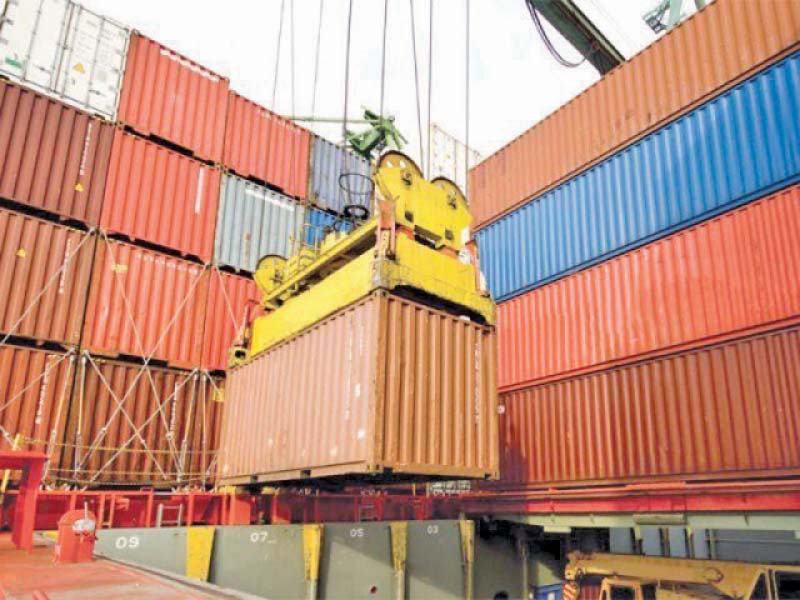
“The Federal Board of Revenue (FBR) deviated significantly from the list of items that the commerce ministry shared with it for the levy of regulatory duties on non-essential items to curb imports,” Additional Commerce Secretary Anjum Assad Amin said.
Amin was presenting the ministry’s views in a meeting of the Senate Standing Committee on Finance that was looking into the latest move to impose heavy duties on 356 tariff lines.
Smuggled mobile phones, tablets worth Rs284m seized
Of these, 136 have been targeted for the first time while duties on 220 tariff lines, which were already subject to high regulatory duties, have been jacked up, according to the FBR’s notification.
In terms of number of goods, 27 items have been targeted for the first time having annual import value of just $1.3 billion. Duties on 31 goods having annual import value of only $1.9 billion have been increased further. The low import value of $3.3 billion clearly suggests that the purpose was to increase revenues instead of curbing imports. The FBR targeted even those items that were considered basic raw material for the industries.
Amin further said the FBR did not share the final list of items with the technical team of the commerce ministry.
The original purpose was to discourage imports of luxury goods in order to restrict the growing import bill that surged to $53 billion in the last fiscal year. However, FBR’s documents showed that the total import value of the goods that have been targeted was only $820 million in the July-September quarter.
If the imports are made at this pace, the total value of these goods for the entire fiscal year will not be more than $3.3 billion.
The maximum reduction in the import bill will not be more than $400 million as major big ticket items like vehicle tyres and industrial inputs are essential items and have to be imported irrespective of the cost.
“The commerce ministry is in favour of efficient imports that are used as raw material and eventually used to enhance exports,” the additional secretary said, adding the ministry would never support imposition of duties on intermediary items.
However, Mukram Jah, Chief of Customs Policy at the FBR, claimed that the FBR had shared the final list of items with Commerce Secretary Younus Dagha in his room.
“The FBR did not show the final list to the commerce ministry’s technical team and we were told that if the list was made public before issuing the notification, this may create distortion in the market,” said Nadia Rehman, trade policy expert of the commerce ministry.
She said the list that the commerce ministry gave did not include accessories and parts of air conditioners being used in cars.
Thal Engineering has agitated against the imposition of up to 20% duty on plastic material and rubber articles being used in the manufacturing of cars. These parts are not manufactured locally and the duty would increase the cost of production, according to Thal Engineering.
The FBR has also targeted items whose imports remained negative in the first quarter. For instance, imports of light fittings had dropped 68% in the first quarter but still the FBR slapped duties.
Import duty on eatables, luxury items raised by up to 350pc
There is a contradiction between FBR’s views, said Senator Saleem Mandviwalla, Chairman of the standing committee. He said the FBR claimed that the duties were not imposed to generate additional revenues but the move targeted the essential items more.
The committee gave two weeks to the FBR to revisit the list and withdraw duties on essential items.
For the first time in the past several years, the government has also imposed regulatory duties on all types of imported cars, including hybrid vehicles. This decision is in violation of the automobile policy, approved by the federal cabinet, and could affect new investments in the sector. The list that the ECC had approved did not include vehicles.
Khalid Shafi, former chairman of the Pakistan Tyres Importers Association, wondered how tyres could be declared a “luxury item”. Local tyre manufacturing met only 20% of the demand and the rest was met by imports and smuggling, he claimed.
Published in The Express Tribune, November 17th, 2017.
Like Business on Facebook, follow @TribuneBiz on Twitter to stay informed and join in the conversation.

1727177459-0/BeFunky-collage-(6)1727177459-0-165x106.webp)


1732694983-0/BeFunky-collage-(1)1732694983-0-165x106.webp)
1732084432-0/Untitled-design-(63)1732084432-0-270x192.webp)











COMMENTS (2)
Comments are moderated and generally will be posted if they are on-topic and not abusive.
For more information, please see our Comments FAQ